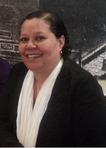The power of story
I’m currently reading Patric Tariq Mellet’s The Lie of 1652: A Decolonised History of Land. Near the beginning of his tome of 429 pages the following caught my attention: the “imposed ideological framework” of apartheid’s strategy of divide and rule was bolstered and carried by the “narratives” chosen to underpin it.
One of the myths that was created was the story of “empty land”. To make this history more palatable and less bloodthirsty, when Jan van Riebeeck and his ship mates arrived in 1652 they found a few indigenous Khoi and San roaming at the Cape. Then “a mass invasion of black alien people swooped down from Nigeria, Cameroon and the Great Lakes and tried to wrest the land from the San, Khoe and Europeans”.
As a writer I appreciate the wonderful drama inherent in this tale. In my mind’s eye I see horses thundering, swords flashing – a real action movie. Automatically there are heroes and villains, and I leave it to your imagination to sort out who is a hero and who is a villain in this tale.
Although we have ostensibly left apartheid behind for almost 30 years, these stories are so deeply embedded that they cannot die. The division that they created between black and brown people, for example, has been difficult to eradicate.
What would break this? I want to postulate that there is much work to be done for the writers in our country. They should roll up their sleeves and study the “narratives” that acted as a scaffold for the ideological framework of slavery and apartheid and counter it.
As Mellet states “The year 1652 has been presented as the genesis of social history in South Africa, and of human advancement and civilization of Africans. Our history was relegated to the realm of the natural history framework of Iron Age and Stone Age hominins” (p7).
There are many versions of history and we have to find a way to tell our own stories in fiction and non-fiction. According to an African proverb, “Until the lion tells the story, the hunter will always be the hero.”
I’m so grateful Mellet wrote this book. I met him (during my PhD research) before the book was published and I was impressed and a bit intimidated by his zeal. He asked me who my ancestors were and I had to meekly confess that I don’t know…
Dear readers, that is something we all ought to know! Who are your ancestors?



